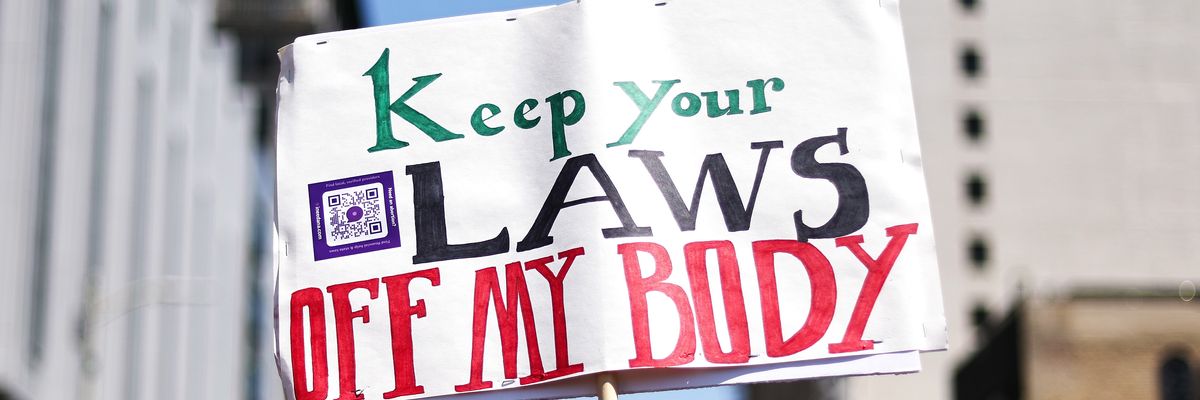Every March, we celebrate Women’s History Month—a time to honor the trailblazers who fought for our rights and recognize how far we have come. But it is also a time to take stock of the battles we’re still fighting, and one of the most urgent is the fight for abortion care.
Abortion access isn’t just about healthcare; it’s about power, equality, and dignity. It’s about recognizing that pregnant people should have the same autonomy, agency, and opportunities as anyone else. Yet, time and time again, legislation is used as a weapon to strip us of our rights, rendering us invisible in the eyes of those who hold power.
When abortion rights are restricted, the effects ripple far beyond the individual. The economic consequences are devastating. Studies have shown that being denied an abortion drastically increases the likelihood of a person living in poverty. The landmark Turnaway Study found that people who were unable to access an abortion were four times more likely to experience financial insecurity, struggle with housing instability, and be trapped in cycles of domestic violence.
In a system where half the population can be denied life-saving medical care, how can we claim to value equality?
This is not just a coincidence—it’s by design. Anti-abortion legislation is not about “life”; it’s about control. It’s about keeping people, especially women and those who can become pregnant, economically vulnerable and dependent. It’s about ensuring that the structures of power remain unchallenged, forcing people to carry pregnancies they cannot afford while denying them the resources to escape poverty.
The hypocrisy is staggering. Many of the same politicians who push for abortion bans are the ones gutting social safety nets—cutting funding for childcare, slashing paid family leave, refusing to raise the minimum wage, and the list goes on. They claim to care about “life” while making it impossible for parents to provide for their children. This is not pro-life; it is anti-equality.
The United States already has the highest maternal mortality rate among developed nations, and the numbers are even more alarming for Black and Indigenous people, who die at three to four times the rate of their white counterparts during childbirth. When states restrict abortion access, they force more people into dangerous pregnancies, increasing these mortality rates even further.
The recent surge of abortion bans and restrictions has created a healthcare crisis. Patients experiencing pregnancy complications—such as miscarriages or ectopic pregnancies—are being turned away from hospitals or left to suffer until their lives are at imminent risk. Doctors fear prosecution for providing necessary care, and pregnant people are treated as legal liabilities rather than human beings.
In a system where half the population can be denied life-saving medical care, how can we claim to value equality?
Women’s History Month exists because, for centuries, women’s contributions were erased, dismissed, or outright stolen. Today, we see that same erasure in real-time when lawmakers craft policies that disregard the needs and realities of half the population.
Look at how abortion laws are written—by men who will never face the consequences of an unwanted pregnancy, let alone a dangerous one. Look at how reproductive healthcare is treated as an afterthought, even though it is central to economic stability, personal freedom, and public health.
Every time a law is passed that strips away abortion access, it is another message that we do not matter. That our health, our futures, our choices are secondary. That we are expected to sacrifice our bodies and our well-being to maintain a system that was never built for us in the first place.
This isn’t just an attack on reproductive rights; it’s an attack on gender equality itself.
Abortion access is not a fringe issue—it is fundamental to equality. If we want a world where women and pregnant people are not just tolerated but truly valued, we must fight for policies that recognize our full humanity.
That means protecting abortion access at every level—through legislation, through the courts, through elections, and through supporting each other. It means funding organizations that help people get the care they need, regardless of where they live—organizations like WRRAP. It means holding politicians accountable and refusing to let them silence us.
Women’s History Month is a reminder that progress is not given—it is won. The right to vote, the right to work, the right to own property, the right to make decisions about our own bodies—none of these rights were freely handed to us. They were fought for, tooth and nail, by those who refused to be invisible.
Now, it is our turn. The battle for abortion justice is the battle for equality itself, and we cannot afford to lose.
This op-ed was distributed by American Forum.

